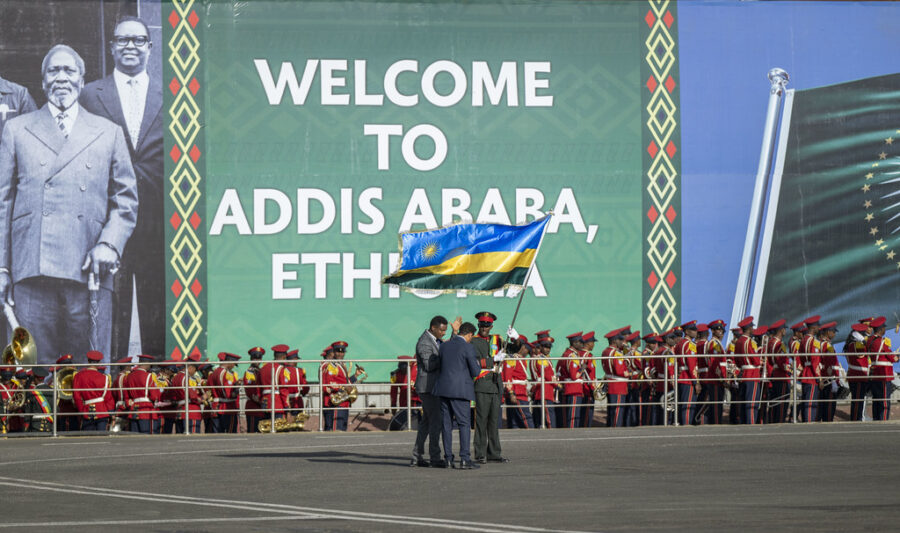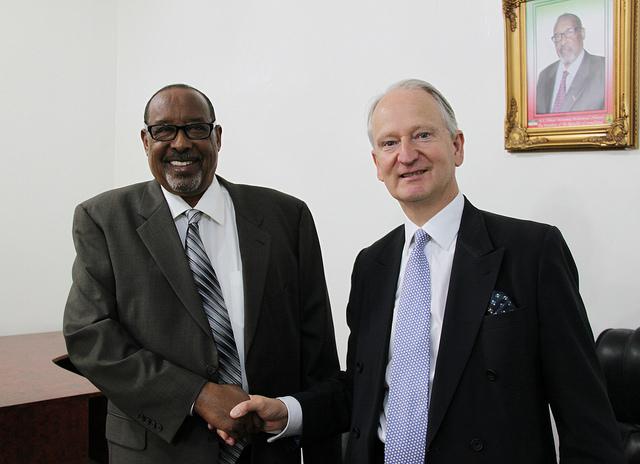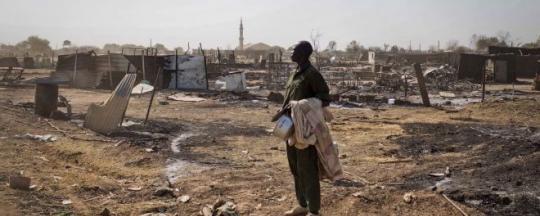“Africanise or perish!” Climate remains high on AU agenda

From supporting Barbados’ plan to transform global climate finance, to pursuing G20 membership, climate was a key issue at the recent summit.

Last month, Addis Ababa welcomed heads of state and government of the African Union (AU) to discuss myriad challenges, including climate. Credit: Paul Kagame.
From 17- 19 February, heads of state of the African Union (AU) met at the body’s 36th annual assembly in Addis Ababa to discuss a profusion of challenges facing the continent. Climate was high on the agenda, with Macky Sall, Senegal’s President and the AU’s outgoing chairperson, emphasising that Africa continues to bear the brunt of global warming, an unprecedented health crisis, and a major war.
To tackle these difficulties, the heads of state emphasised the need for the AU to be represented at the UN Security Council, calling for at least two permanent and five non-permanent seats. The importance of G20 membership was also reiterated, with Sall announcing that 50% of the intergovernmental group had already expressed support for the AU and that accession to full membership was on track.
G20 membership would not only strengthen Africa’s participation within key multilateral forums but would provide an opportunity for African input into the G20 Initiative on the suspension of debt servicing and the partial reallocation of Special Drawing Rights (international reserve assets created by the International Monetary Fund[IMF]). These instruments could be used in “debt for climate” swaps – in which a country’s debt is cancelled in return for commitments to finance domestic climate projects – or could free up fiscal space for African countries to spend on climate change related measures.
At the AU assembly, President Sall called out the inequity of African countries’ having their credit ratings downgraded during the pandemic and thereafter, while developed countries were spared, and emphasised the need for IMF and World Bank reform to better take account of Africa’s interests. To this end, he called for African countries and the AU Commission to participate actively in the Bridgetown Initiative on the reform of the global financial architecture. Led by Barbados’ Prime Minister Mia Mottley, the Bridgetown Initiative proposes bold changes to how global finance institutions to provide climate finance to the Global South.
Committee on Climate Change
On 18 February, the AU’s Committee of African Heads of State and Government on Climate Change (CAHOSCC) met in parallel with the assembly. Its coordinator, Kenya’s President William Ruto called on African countries to leverage their substantial capacity for renewable energy and abundance of minerals required for green technologies. He called on African countries to contribute their voice to the leadership transition underway at the World Bank to make the institution responsive, climate sensitive, and fit for purpose. His direct message to the World Bank, IMF and International Finance Corporation (IFC) was “Africanise or perish!”
The African leaders of CAHOSCC also endorsed a decision to participate in the legal proceedings initiated by the Commission on Small Island States on Climate Change and International Law (COSIS) at the International Tribunal for the Law of the Sea (ITLOS). The proceedings were launched in December 2022, when COSIS submitted a request for an advisory opinion on the legal obligations of States to the UN Convention on the Law of the Sea to prevent, reduce and control ocean warming, sea level rise, and ocean acidification. While a legal opinion from ITLOS would not be binding, it would be highly influential in subsequent litigation between states and would contribute towards the development of customary (uncodified) international law on the legal liability of states for climate change. The AU’s position on this issue demonstrates the continent’s appetite to tackle the inequality of being the primary bearer of climate losses and damages and may support its negotiation positions in other forums.
Preparing for COP28
Looking to COP28 later this year, CAHOSCC urged the African Group of Negotiators (AGN) to continue to argue for formal recognition of Africa’s special needs and circumstances to unlock additional financial flows. It stressed that developed countries need to honour their commitment to double adaptation finance and scale up their climate finance pledges to at least $6 trillion/year in the period leading up to 2030. The African leaders also called for $4 trillion/year in investments in renewable energy and urged negotiators to seek a “substantive milestone outcome” at COP28 on the global goal on adaptation – i.e. something more than just an agreement to keep discussing the possible contents of an adaptation goal.
CAHOSCC also underscored the urgency of operationalising the Loss and Damage Fund and for the transitional committee, which is in the process of establishing the fund, to be guided by existing principles of the Paris Agreement (such as common but differentiated responsibilities).
The climate change committee further welcomed the work programme on Just Transitions established at COP27 and invited African countries to consider their own unique pathways to low carbon and climate resilient development. This was to push against the suggestion that there is a one-size-fits-all solution. Member states were encouraged to continue preparing for the global stocktake where countries will assess their collective progress in implementing the Paris Agreement at COP28 and were advised to put forward recommendations to inform the mitigation, adaptation, and climate finance goals.
Finally, the AU welcomed a proposal by the Republic of the Congo to launch an African and World Decade of Afforestation to combat climate change. An international conference on this issue will be held in the Republic of Congo in November 2023. As coordinator of CAHOSCC, Kenya will host the African Climate Summit on 4-6 September 2023.
A version of this piece was originally published on African Climate Wire.







I am sure that African leaders are all too aware that the ‘West’ and now also China, just want to make money from exploiting Africa.
In the 1830s Britain paid ‘compensation’ to all those whose ensslaved workers were freed. The enslaved got not a penny. So maybe now that money should be ‘captured’, from everyone paid more than say £20 and used on climate change issues.